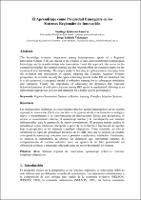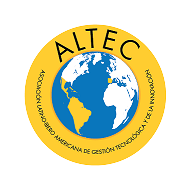El Aprendizaje como Propiedad Emergente en los Sistemas Regionales de Innovación

View/
Date
2013Author
Quintero Ramírez, Santiago
Robledo Velásquez, Jorge
Metadata
Show full item recordAbstract
The knowledge systemic interactions among heterogeneous agents of a Regional Innovation System (RIS) are crucial in the creation of new and recombinant technological knowledge and its transformation into innovations. From this approach, the access to the external knowledge, the internal learning and the research effort are essential inputs for the creation of new knowledge. This paper analyzes learning as a phenomenon emerging from the evolution and interactions of agents, adopting the Complex Adaptive Systems perspective. As a result, not only the types of learning present in the RIS are identified, but it is also proposed a conceptual model of collective learning for its subsequent simulation and validation. Finally, the importance of addressing the dynamics that represent behavioral patterns of collective character among RIS agents is emphasized, allowing us to differentiate appropriate policies and strategies for a better system performance. Las interacciones sistémicas de conocimiento entre los agentes heterogéneos de un sistema
regional de innovación (SRI) son cruciales en la generación de conocimiento tecnológico
nuevo y recombinante y su transformación en innovaciones. Desde esta perspectiva, el
acceso al conocimiento externo, el aprendizaje interno y la investigación son insumos
indispensables para la generación de nuevo conocimiento. El presente trabajo analiza el
aprendizaje como fenómeno emergente a partir de la evolución e interacción de agentes
bajo la perspectiva de los sistemas complejos adaptativos. Como resultado, no solo se
identifican los tipos de aprendizaje presentes en los SRI, sino que se propone un modelo
conceptual de aprendizaje colectivo para su posterior simulación y validación. Finalmente,
se enfatiza la importancia de abordar las dinámicas que representan patrones de
comportamiento de carácter colectivo entre los agentes de un SRI, permitiendo así
diferenciar políticas y estrategias adecuadas para un mejor desempeño del sistema.

